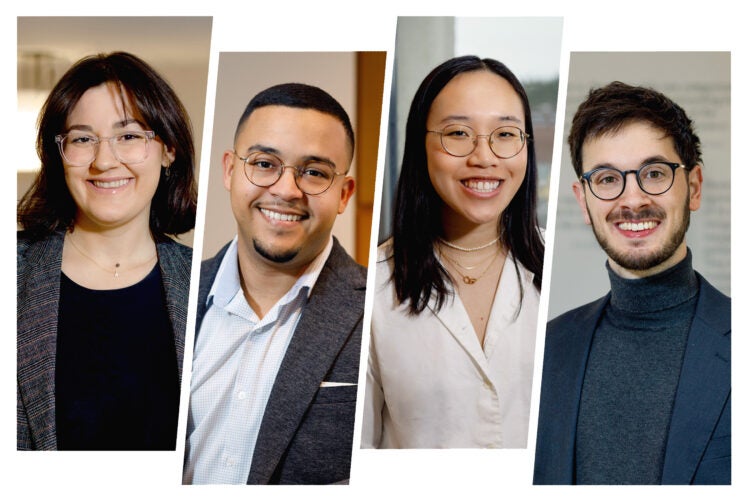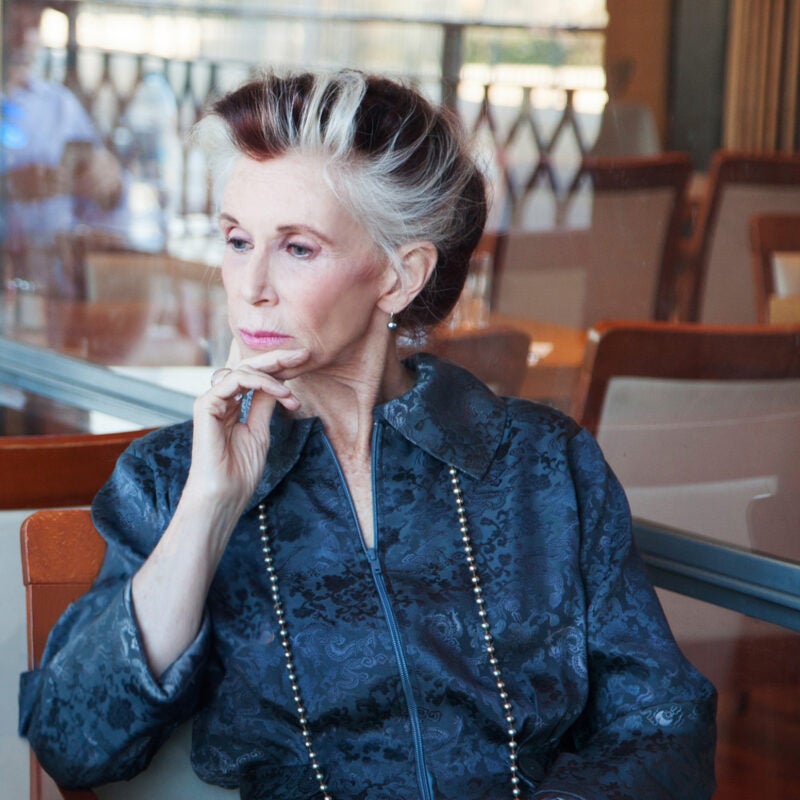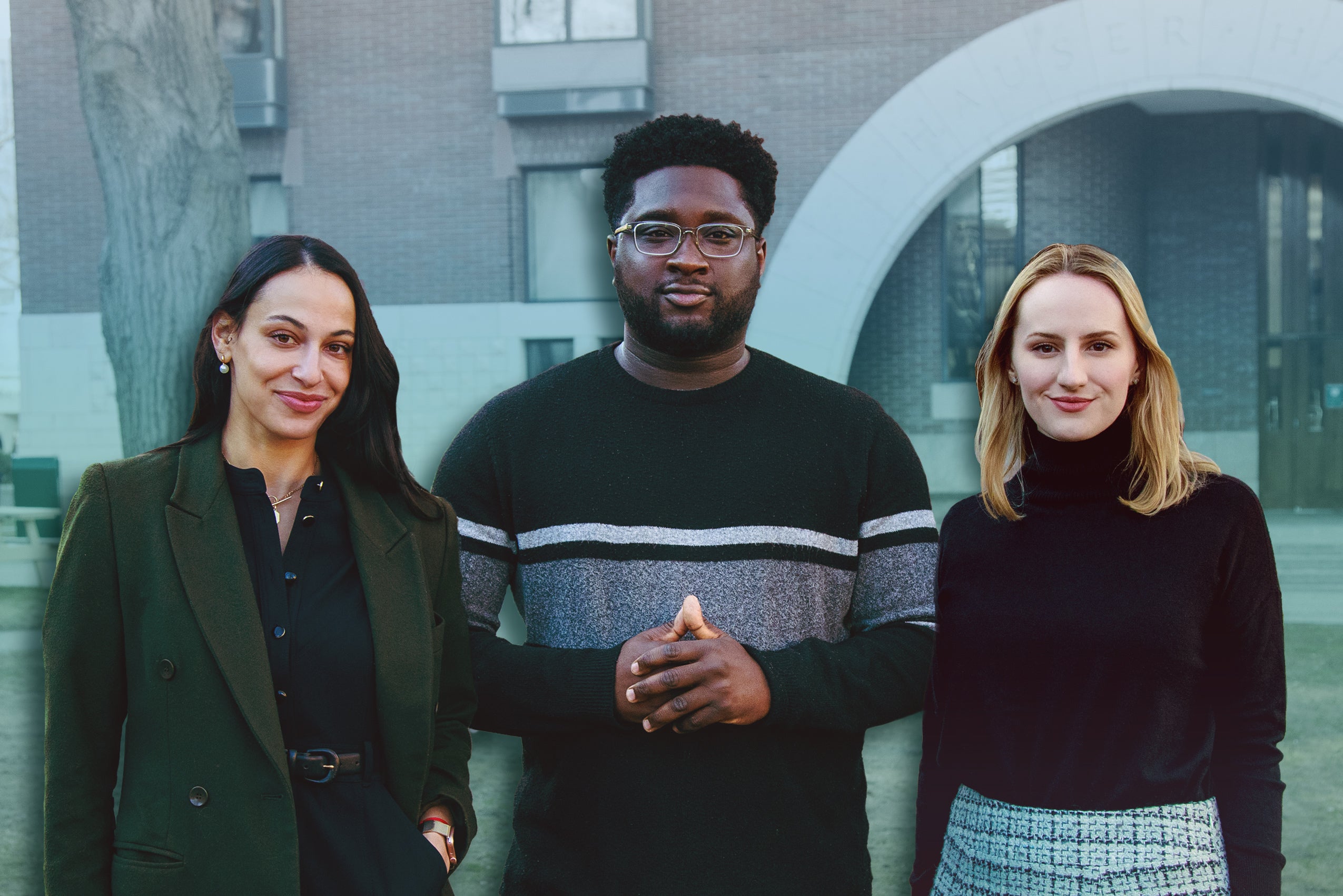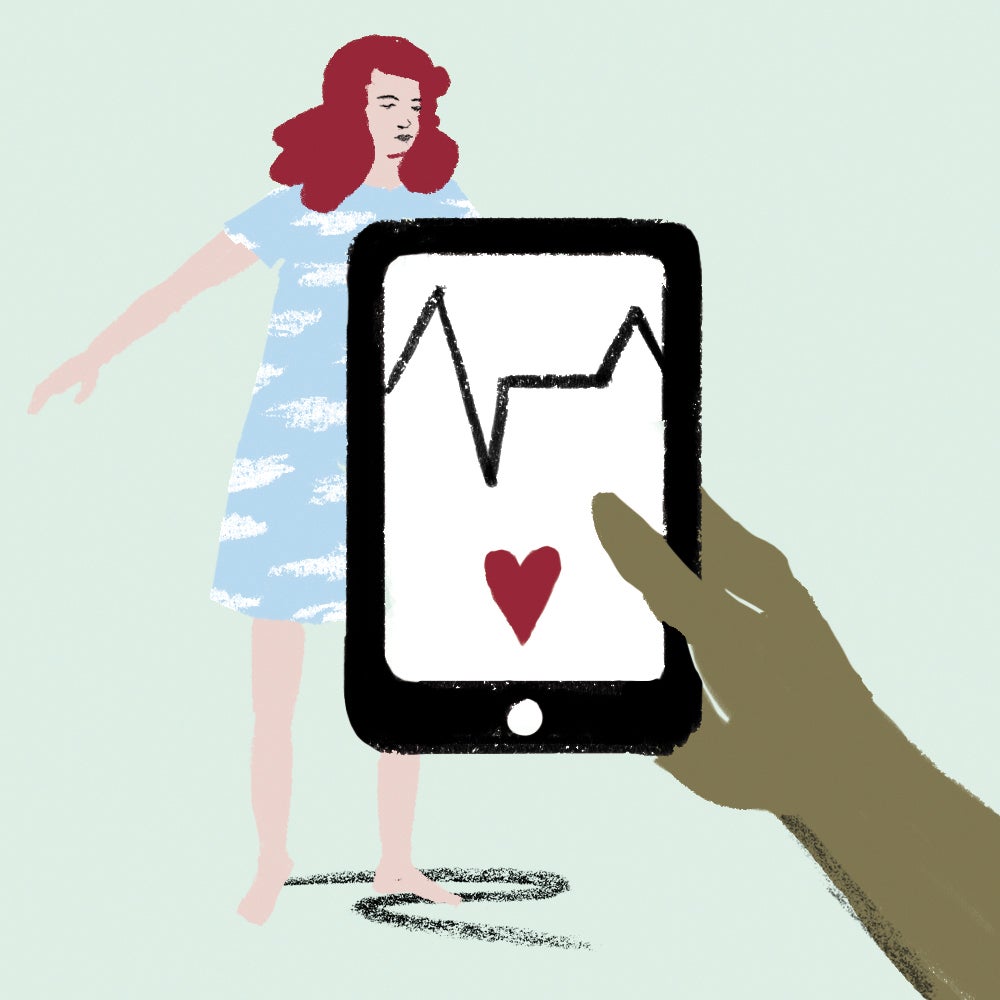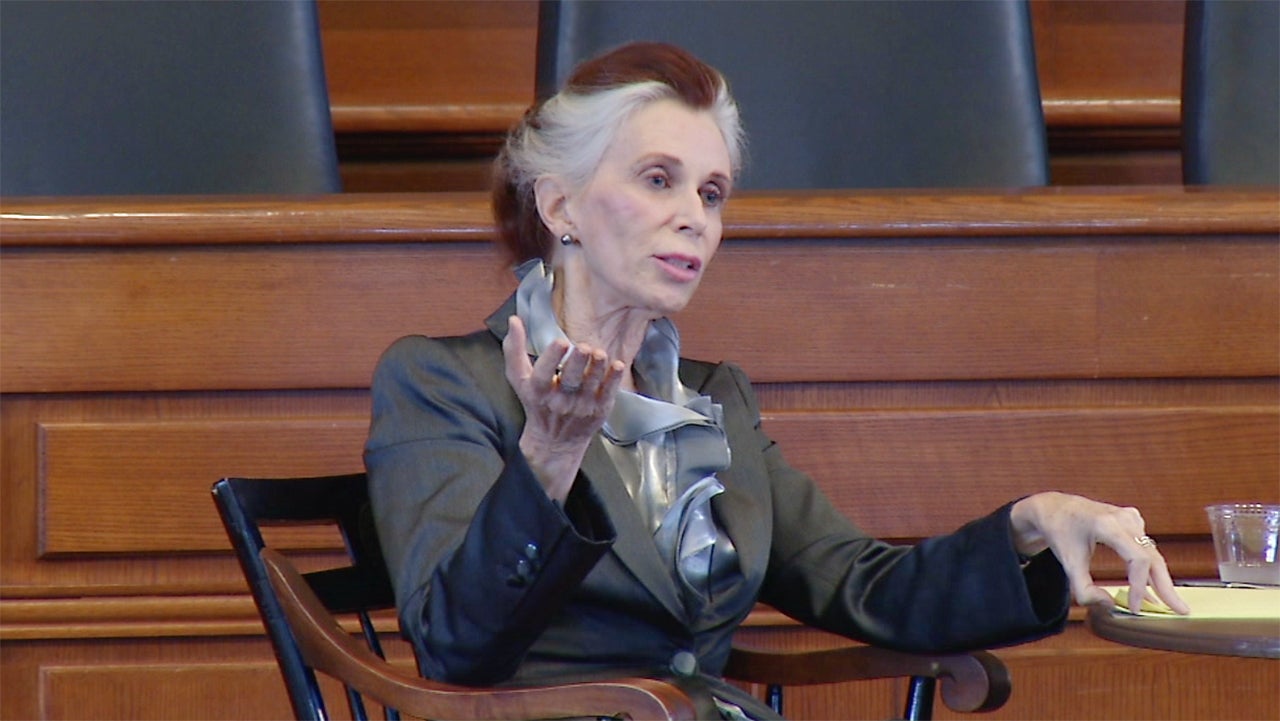People
Catharine MacKinnon
-
During Winter Term, Cravath International Fellows pursued independent clinical placements or research projects, exploring legal frameworks and practices in six countries.
-
Jillian Melton was paid just $2.13 per hour — the lowest legal cash wage in the U.S. — during her six years at Seasons 52 Wine Bar and Grill in Memphis, Tennessee. The rest of her income came from tips, which could vary widely depending on the day of the week or the whim of the customer. Melton also says she witnessed discrimination on the job — not only from customers but also from the store’s management. As a young, lighter-skinned Black woman of mixed heritage, Melton says she was often assigned by her managers to the busiest, most front-facing sections of the restaurant along with her white and young coworkers. But her older and darker-skinned Black coworkers were given emptier sections where tips would only slowly trickle in — a pattern of discrimination based on colorism, racism, and ageism that resulted in her bringing home vastly more tips. ... Catharine A. MacKinnon, a professor at Michigan Law School and Harvard Law School and an author on the 2021 report, adds that this problem is an “underlying dynamic” in the restaurant industry. In an e-mail to Civil Eats, she described the tipping system as putting workers “at the sexual whim and mercy of whoever provides the tips, or provides the conditions that enhance or make tips possible.”
-
OnlyFans Is Not a Safe Platform for ‘Sex Work.’ It’s a Pimp.
September 7, 2021
An op-ed by Catharine A. MacKinnon: We are living in the world pornography has made. For more than three decades, researchers have documented that it desensitizes consumers to violence and spreads rape myths and other lies about women’s sexuality. In doing so, it normalizes itself, becoming ever more pervasive, intrusive and dangerous, surrounding us ever more intimately, grooming the culture so that it becomes hard even to recognize its harms. ... “Sex work” implies that prostituted people really want to do what they have virtually no choice in doing. That their poverty, homelessness, prior sexual abuse as children, subjection to racism, exclusion from gainful occupations or unequal pay plays no role. That they are who the pornography says they are, valuable only for use in it.
-
The First Amendment in the age of disinformation.
October 20, 2020
This summer, a bipartisan group of about a hundred academics, journalists, pollsters, former government officials and former campaign staff members convened for an initiative called the Transition Integrity Project. By video conference, they met to game out hypothetical threats to the November election and a peaceful transfer of power if the Democratic candidate, former Vice President Joe Biden, were to win...The idea was to test the machinery of American democracy...Along with disinformation campaigns, there is the separate problem of “troll armies” — a flood of commenters, often propelled by bots — that “aim to discredit or to destroy the reputation of disfavored speakers and to discourage them from speaking again,” Jack Goldsmith, a conservative law professor at Harvard, writes in an essay in “The Perilous Public Square,” a book edited by David E. Pozen that was published this year. This tactic, too, may be directed by those in power...Concerns about the harm of unfettered speech have flared on the left in the United States since the 1970s. In that decade, some feminists, led by the legal scholar Catharine A. MacKinnon and the activist Andrea Dworkin, fought to limit access to pornography, which they viewed as a form of subordination and a violation of women’s civil rights. In the 1980s and ’90s, scholars developing critical race theory, which examines the role of law in maintaining race-based divisions of power, called for a reading of the First Amendment that recognized racist hate speech as an injury that courts could redress...The Supreme Court has also taken the First Amendment in another direction that had nothing to do with individual rights, moving from preserving a person’s freedom to dissent to entrenching the power of wealthy interests. In the 1970s, the court started protecting corporate campaign spending alongside individual donations. Legally speaking, corporate spending on speech that was related to elections was akin to the shouting of protesters. This was a “radical break with the history and traditions of U.S. law,” the Harvard law professor John Coates wrote in a 2015 article published by the University of Minnesota Law School. Over time, the shift helped to fundamentally alter the world of politics.
-
Where #MeToo Came From, and Where It’s Going
March 25, 2019
An article by Catharine A. MacKinnon: From experience, women often assume that any opposition to power will produce retaliation followed by retrenchment: not only that any progress made will be clawed back, but that those pushing for it will be punished. While often realistic, fear of blowback can impede insistence on change and the collective mobilization it requires. Anxiety about backlash, however well founded, keeps one’s antennae endlessly attuned to giving power what pleases (and please pacifies) it. This contributes to keeping dominance in place.
-
Why do alleged campus rapists have more rights than victims?
March 12, 2019
It is a truth universally acknowledged that an angry man in possession of a pricey lawyer must be in want of revenge. Or so it seems, reading the recent complaint filed by a student expelled from Dartmouth College for sexual assault. The young man known as “John Doe” is suing his former college for treating him “unfairly” during the Title IX investigation that led to his expulsion. ... The historical barrier to ending sexual abuse, says law professor Catharine McKinnon, has been “the disbelief and trivializing dehumanization of its victims.” Perpetrators often wield legal systems to intimidate and silence survivors. Custody battles in domestic violence cases, defamation in sexual assault suits, claims of gender discrimination against male offenders—all rely on the misogyny of the general public and use victims’ own trauma responses against them.
-
In Defense of Harvey Weinstein’s Harvard Lawyer
March 4, 2019
The law professor Ronald S. Sullivan Jr. is among the most accomplished people at Harvard. He has helped to overturn scores of wrongful convictions and to free thousands from wrongful incarceration. ... Sullivan faces this “clamor of popular suspicions and prejudices” because he agreed to act as a criminal-defense attorney for an object of scorn and hatred: Harvey Weinstein. ... Catharine MacKinnon, Harvard’s James Barr Ames Visiting Professor of Law, emailed: The issue is not whether Ron can represent reviled clients accused of crimes and still be the faculty dean of a college. Of course he can. The issue is substantive. ...The Harvard law professor Lawrence Lessig echoes the argument that it’s possible to be a survivor of sexual assault and feel comfortable with Sullivan’s choice. ...“The skills, capacities, and dispositions that would help to make a person a valued defense counsel are also the skills, capacities, and dispositions that would help to make a person a valued Faculty Dean,” [Randall Kennedy] argued. ... The Harvard professor Jeannie Suk Gersen emailed me her concerns with such “processes”: "Professor Sullivan has chosen to represent and defend persons whom many people would not defend. Strong disagreement with those choices is of course part of the exploration of differences of principle and opinion that we’d hope for in a university." ... “Little more than half a century ago, mainstream lawyers were frightened away from defending alleged Communists who faced congressional witch hunts, blacklisting, criminal trials, and even execution,” Harvard Law’s Alan Dershowitz wrote. ... The Harvard professor Janet Halley calls Harvard’s actions “deeply disturbing.” She explained in an email: The right to counsel even for the most despised defendants, the basic role of counsel in our legal order, the presumption of innocence, academic freedom, and the right of University employees to assist persons accused in the University’s Title IX proceedings—are all implicated here. ... The Harvard law professor Scott Westfahl, however, defended the idea of a climate review, also by email. ... “We are all better off as a result,” and he noted, “I completely support the right of Professor Sullivan, an extremely talented defense lawyer, to take on a very difficult case. Should Mr. Weinstein be convicted, there will be absolutely no doubt that he received a fair hearing with the best possible defense counsel.”
-
Do American Women Still Need an Equal Rights Amendment?
February 22, 2019
When Phyllis Schlafly crusaded against the Equal Rights Amendmentin the 1970s as a threat to all-American motherhood, she handed out freshly baked bread and apple pie to state legislators. She warned of a dystopian post-E.R.A. future of women forced to enlist in the military, gay marriage, unisex toilets everywhere and homemakers driven into the workplace by husbands free to abandon them. ... Catharine A. MacKinnon, whose legal theories laid the basis for sexual harassment being defined as a form of sex discrimination, has championed the revival of the amendment as a weapon against what she sees as the continuing subordination of women through sexual violence and economic inequality. “You go after sexuality and economics, you’ve gone to the heart of misogyny,” she said.
-
Faculty Books in Brief: Winter 2019
January 29, 2019
With the increased use of a massive volume and variety of data in our lives, our health care will inevitably be affected, note the editors of a new collection, one of the recent faculty books captured in this section.
-
‘This Moment Turned Out to Be Fleeting’
October 9, 2018
Nine reflections on #MeToo, one year on...Catharine A. MacKinnon: After four decades, or two thousand years, depending on when you start counting, indications are that #MeToo is working. The imposed silence that has walled off reports of sexual abuse is crumbling. Sexually abused women, and some men, are rising up; perpetrating men, and some women, are tumbling down. What was previously ignored or attributed to lying, deranged or venial discontents and whiners is being regarded and treated as disgraceful and outrageous misconduct with which no self-respecting company or university can afford to be associated.
-
Brett Kavanaugh And The Men Who Say Nothing
September 26, 2018
...The former clerk declined to be named in HuffPost for privacy reasons, but Catharine MacKinnon, a prominent professor at the University of Michigan Law School who first conceptualized the notion of sexual harassment in the legal system, confirmed his story. “He spoke of hearing in the chambers things Judge Kozinski said that I vividly recall were sexually salacious,” she said, adding that the judge made this man extremely uncomfortable. The former clerk was MacKinnon’s research assistant years ago...“He thought it was discriminatory, harassing to everybody in the chambers. He was absolutely horrified and attempted to convey his lack of enjoyment of this to the judge,” MacKinnon said.
-
HLS Library Book Talk: “Butterfly Politics”
September 24, 2018
At a recent Harvard Law School Library Book Talk, Catharine A. MacKinnon, a pioneer of legal theory and practice and an activist for women’s rights, discussed her latest book "Butterfly Politics," in which she argues that seemingly minor interventions in the legal realm can have a butterfly effect that generates major social and cultural transformations.
-
What Should the Senate Do With Brett Kavanaugh?
September 17, 2018
...Here’s what our panel of legal scholars thinks should happen next...‘‘The question isn’t only whether Brett Kavanaugh can still be a Supreme Court Justice; it’s whether he can still be a federal judge." Catharine A. MacKinnon...‘This accusation cannot responsibly be ignored’ Laurence H. Tribe
-
Business of Rape
July 10, 2018
...American legal scholar Catharine MacKinnon argues that the difference “between prostituted people and those who buy and sell them are that one is served, the other serves; one is bought, the other buys and sells them; one is stigmatised, the other retains respectability; one is a criminal, the others either are not, or the law against them is virtually never enforced. And the one is mostly women, the others overwhelmingly men.”
-
Why the Equal Rights Amendment Still Matters
July 5, 2018
...Right now, women who are sexually assaulted or harassed have civil legal recourse in two areas: employment and education. “If we’re sexually assaulted, if it isn’t within the scope of Title VII as it understands an employment relation, or Title IX in education, we don’t have any equality rights,” said Catharine A. MacKinnon, a law professor at the University of Michigan and a pioneer in the field of sexual harassment and sex discrimination law.
-
After #MeToo, the Ripple Effect
July 2, 2018
...“If survivors of sexual violation were believed and valued, across culture, society, and law, that in itself would be a major transformation,” said Catharine A. MacKinnon, the legal scholar who, in 1979, first laid the groundwork for sexual harassment law and went on to argue it before the Supreme Court. In a recent column in The Times, Ms. MacKinnon noted that #MeToo had done for society what the law could not — eroding one of the biggest barriers to prosecuting sexual harassment, which was “the disbelief and trivializing dehumanization of its victims.”
-
How Conservatives Weaponized the First Amendment
July 2, 2018
...The two decisions were the latest in a stunning run of victories for a conservative agenda that has increasingly been built on the foundation of free speech. Conservative groups, borrowing and building on arguments developed by liberals, have used the First Amendment to justify unlimited campaign spending, discrimination against gay couples and attacks on the regulation of tobacco, pharmaceuticals and guns...free speech reinforces and amplifies injustice, Catharine A. MacKinnon, a law professor at the University of Michigan, wrote in “The Free Speech Century,” a collection of essays to be published this year. “Once a defense of the powerless, the First Amendment over the last hundred years has mainly become a weapon of the powerful,” she wrote. “Legally, what was, toward the beginning of the 20th century, a shield for radicals, artists and activists, socialists and pacifists, the excluded and the dispossessed, has become a sword for authoritarians, racists and misogynists, Nazis and Klansmen, pornographers and corporations buying elections.”
-
Women speakers at the Milken Institute Global Conference on Monday called for a new push for change in the corporate world and investing now that the #MeToo movement has spread to industries outside of Hollywood...Harvard Law School professor Catharine MacKinnon, a long-time researcher on gender equality, said that male leaders at companies can make a difference by not tolerating any sexual harassment and making it clear to all employees. "I've seen heads of companies get everyone together and actually say, 'We don't do this here. You don't come here to graze on the women'," she said. She added that in her early days of work on sexual harassment research, the issue would be dismissed.
